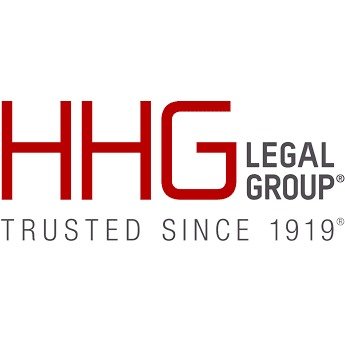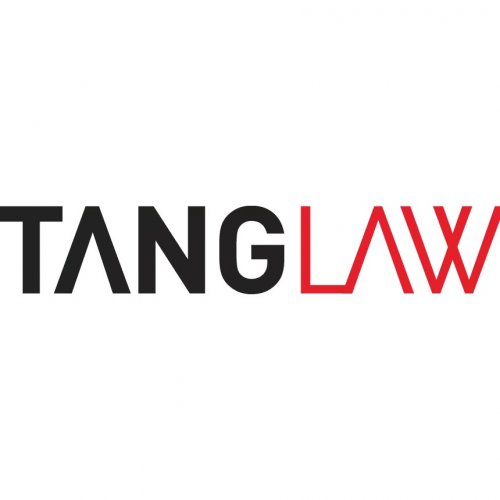Best Inheritance Law Lawyers in Australia
Share your needs with us, get contacted by law firms.
Free. Takes 2 min.
Or refine your search by selecting a city:
List of the best lawyers in Australia
About Inheritance Law in Australia
Inheritance law in Australia governs how a deceased person’s assets are distributed. It covers wills, intestacy, probate or letters of administration, and family provision claims. Because family structures and assets often span states, the system relies on state and territory legislation rather than a single national framework.
Key elements include validity of a will, appointment of executors or administrators, and the rights of dependants and other potential beneficiaries. In addition to will related matters, superannuation death benefits and tax considerations can influence how an estate is distributed. Because laws vary by jurisdiction, consulting a local solicitor or barrister is essential for accurate guidance.
For a general overview of how these processes work in Australia, see state resources on wills, probate and estates. For example, NSW, Victoria and Queensland each publish official guidance and legislation in their respective portals and act databases. NSW Legislation, Victoria Legislation, and Queensland Legislation provide access to current acts such as the Succession Act 2006 (NSW), the Administration and Probate Act 1958 (Vic), and the Succession Act 1981 (Qld).
Note: In Australia, the governing rules for wills and estates are primarily state based, and processes like probate or letters of administration are filed in the relevant jurisdiction.
Recent practice trends include increased activity in family provision claims and evolving rules around superannuation death benefits, which may bypass a will. See the Australian Taxation Office for guidance on tax considerations that apply to estates and beneficiaries. CGT and estates - ATO.
Why You May Need a Lawyer
Estate matters can be complex and time sensitive. A solicitor, solicitor-barrister, or legal counsel with experience in inheritance law can help protect your rights and navigate state specific requirements.
- Drafting or updating a will to reflect modern family arrangements. A blended family with children from different partners may require targeted provisions to prevent disputes after death. A lawyer can draft clear language and advise on potential challenges to the will.
- Contesting a will or handling a family provision claim. If you believe a dependent or someone with a valid expectation has not been adequately provided for, a lawyer can assess eligibility under state Family Provision statutes and guide you through a claim process.
- Handling intestacy when there is no valid will. If someone dies without a will, a lawyer helps determine rightful shares under intestacy rules and assists with applying for letters of administration.
- Administering an estate with assets in multiple states. Cross jurisdiction estates require coordinating probate or administration across boundaries, which a lawyer can manage to avoid delays or missteps.
- Dealing with debts, taxes and beneficiaries. A lawyer helps identify estate liabilities, lodge tax returns for the estate, and communicate with beneficiaries to minimise conflicts.
- Managing superannuation death benefit issues. Superannuation funds are often paid according to fund rules rather than a will. A lawyer can advise on who can claim and how it interacts with estate distribution.
Local Laws Overview
Australia uses state and territory legislation to govern inheritance matters. The following acts are foundational across several jurisdictions and illustrate how will validity, probate, and provision for dependants are regulated locally.
- Succession Act 2006 (NSW). Governs wills, intestacy, probate, and related matters in New South Wales. This act also interacts with the Family Provision Act 1982 to determine claims for dependants. NSW Legislation - Succession Act 2006
- Administration and Probate Act 1958 (Vic). Sets out processes for probate, administration of estates, and related procedures in Victoria. It is frequently amended to reflect evolving practice. Victoria Legislation - Administration and Probate Act 1958
- Succession Act 1981 (Qld). Establishes rules for wills, intestacy, and probate in Queensland. It is complemented by Queensland’s Family Provision Act 1982 and related reforms. Queensland Legislation - Succession Act 1981
Across jurisdictions, key concepts include probate (the court process validating a will), letters of administration (granting authority when there is no valid will), and family provision claims (claims by dependants for a portion of the estate). For more context on tax considerations, see the ATO guidance on capital gains tax and estates. CGT and estates - ATO.
Frequently Asked Questions
What is probate and when do I need it?
Probate is the court process validating a will before the estate assets can be distributed. If there is a valid will, probate is usually required to administer the estate and transfer titles. Without probate, assets may be disputed or delayed.
What is the difference between a will and an intestacy?
A will specifies how assets should be distributed after death. Intestacy occurs when there is no valid will, and the estate is distributed under state rules to statutory beneficiaries.
How long does probate typically take in Australia?
Times vary by state and complexity. Straightforward NSW estates may proceed faster than those with multiple assets or disputes. Delays often arise from missing documents or challenges to the will.
Do I need a lawyer to make or update a will?
While you can make a will without a lawyer, a solicitor can ensure legal validity and reduce the risk of later challenges. They can also help with complex assets and family arrangements.
What fees should I expect when hiring an inheritance lawyer?
Fees depend on the matter’s complexity and the lawyer’s structure. Typical costs may include hourly rates or fixed fees for straightforward probate tasks. Always request a written engagement and estimate.
Can I challenge a will if I believe I have not been provided for?
Yes. Most states allow a family provision or dependency claim if the will does not adequately provide for dependants. Time limits and requirements vary, so seek legal advice promptly.
What is a 'letter of administration'?
A letter of administration grants a person the authority to administer an estate when there is no valid will. This process is similar to probate but applies to intestate situations.
Do I need to prove a will is valid before distribution?
Yes. A validating process ensures the will is legally binding and the executor can proceed with asset distribution and paying debts.
How do I start a probate application for a NSW estate?
In NSW, you typically file a probate application with the Supreme Court. You will need the death certificate, the original will, and an asset and debt list. Consider using a solicitor to prepare and lodge documents.
What costs are involved in defending a will in court?
Costs include court fees, legal representation, and potentially expert evidence. Resolving disputes early with negotiation can reduce overall costs and time.
How is superannuation involved in estate distribution?
Superannuation death benefits often pass outside the will according to fund rules. A lawyer can help determine eligibility and coordinate with the estate for any outstanding matters.
Do I need to be an Australian resident to claim an entitlement?
Residency and domicile considerations vary by jurisdiction and claim type. Seek advice to understand how your status affects eligibility for a share of the estate.
Additional Resources
- - Provides information on wills, probate, and estate administration in New South Wales, and acts as administrator when directed by the court or by court order. Website: NSW Trustee & Guardian.
- - Delivers executor and estate administration services and guidance for Victorians, including managing estates where there is no will. Website: Public Trustee Victoria.
- - Provides official guidance on tax implications for estates, including capital gains tax for deceased estates. Website: ATO.
Next Steps
- Identify whether you need probate, administration, a will update, or a family provision review. This helps target the right lawyer. Time estimate: 1-3 days.
- Collect the death certificate, existing will (if any), asset list, debt statements, and information about superannuation. Time estimate: 1-2 weeks.
- Look for solicitors or barristers who specialise in wills, probate and family provision claims in the relevant state. Time estimate: 1-2 weeks.
- Contact 2-3 firms and arrange an introductory meeting to discuss your matter and costs. Time estimate: 2-4 weeks.
- Ask about experience with your specific issue, cost structures, and expected timelines. Time estimate: 1 day.
- Review engagement letters, fees, and the proposed plan. Sign and initiate work with a clear timetable. Time estimate: 1-3 weeks after initial consultations.
- Your solicitor or barrister will handle filings, negotiations, and communications with beneficiaries. Expect periodic updates; adjust timelines as needed. Time estimate: varies by matter, typically weeks to months.
Lawzana helps you find the best lawyers and law firms in Australia through a curated and pre-screened list of qualified legal professionals. Our platform offers rankings and detailed profiles of attorneys and law firms, allowing you to compare based on practice areas, including Inheritance Law, experience, and client feedback.
Each profile includes a description of the firm's areas of practice, client reviews, team members and partners, year of establishment, spoken languages, office locations, contact information, social media presence, and any published articles or resources. Most firms on our platform speak English and are experienced in both local and international legal matters.
Get a quote from top-rated law firms in Australia — quickly, securely, and without unnecessary hassle.
Disclaimer:
The information provided on this page is for general informational purposes only and does not constitute legal advice. While we strive to ensure the accuracy and relevance of the content, legal information may change over time, and interpretations of the law can vary. You should always consult with a qualified legal professional for advice specific to your situation.
We disclaim all liability for actions taken or not taken based on the content of this page. If you believe any information is incorrect or outdated, please contact us, and we will review and update it where appropriate.
Browse inheritance law law firms by city in Australia
Refine your search by selecting a city.

















